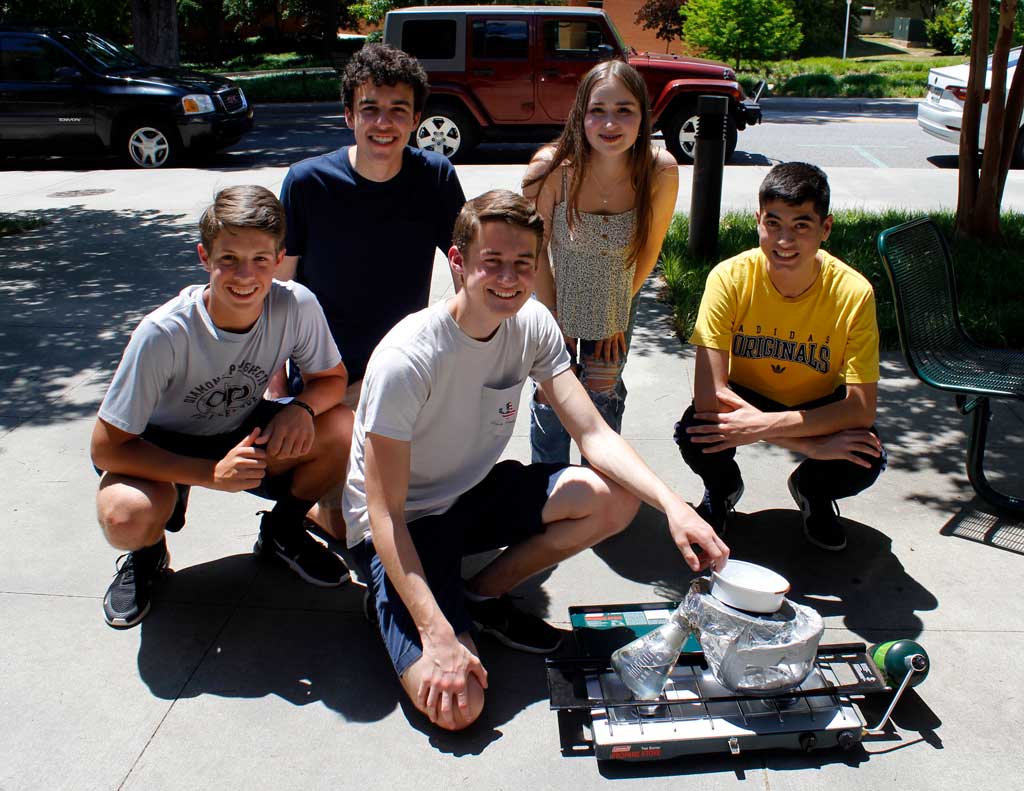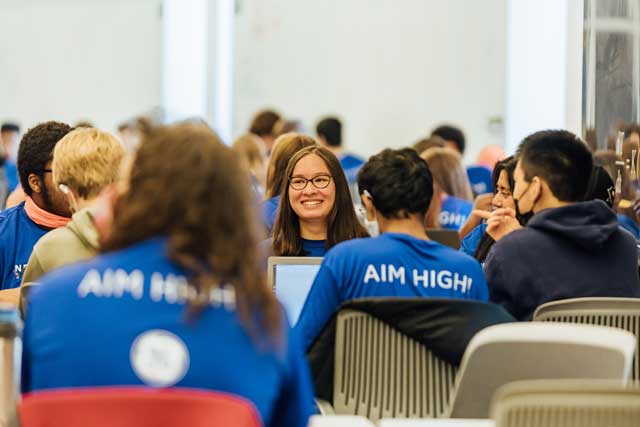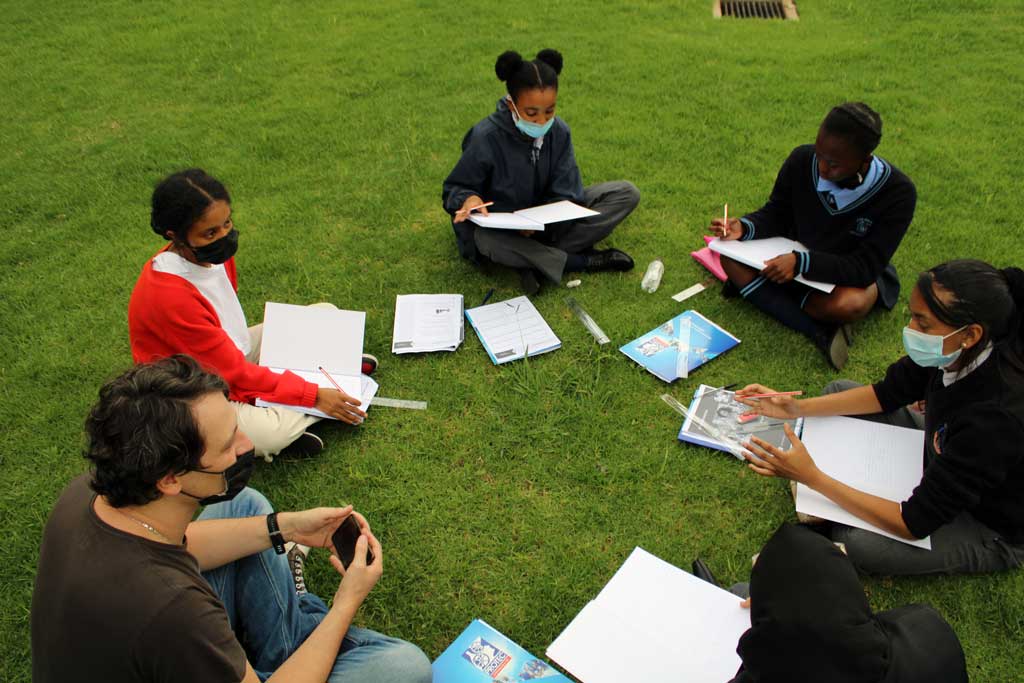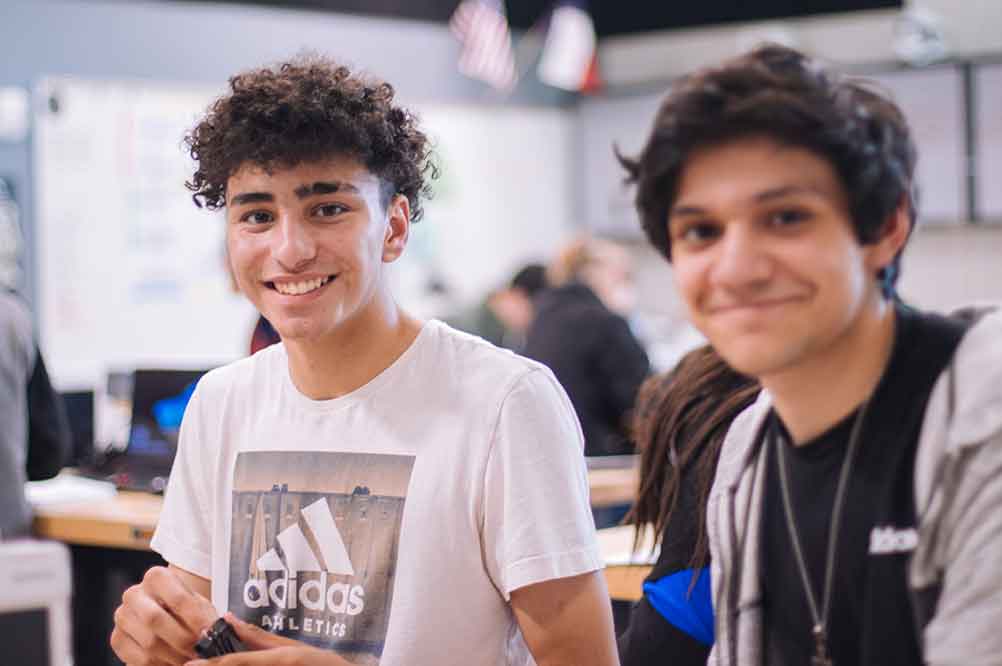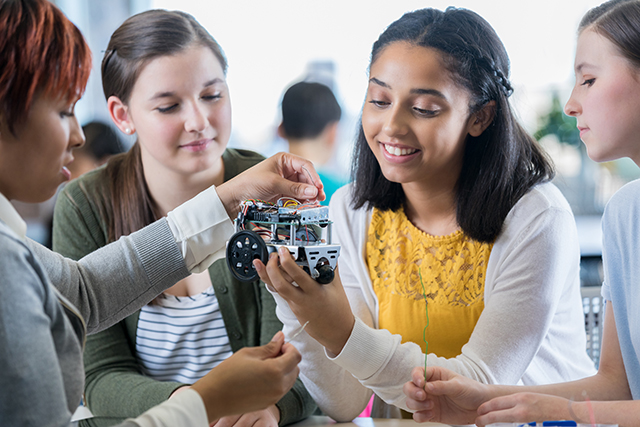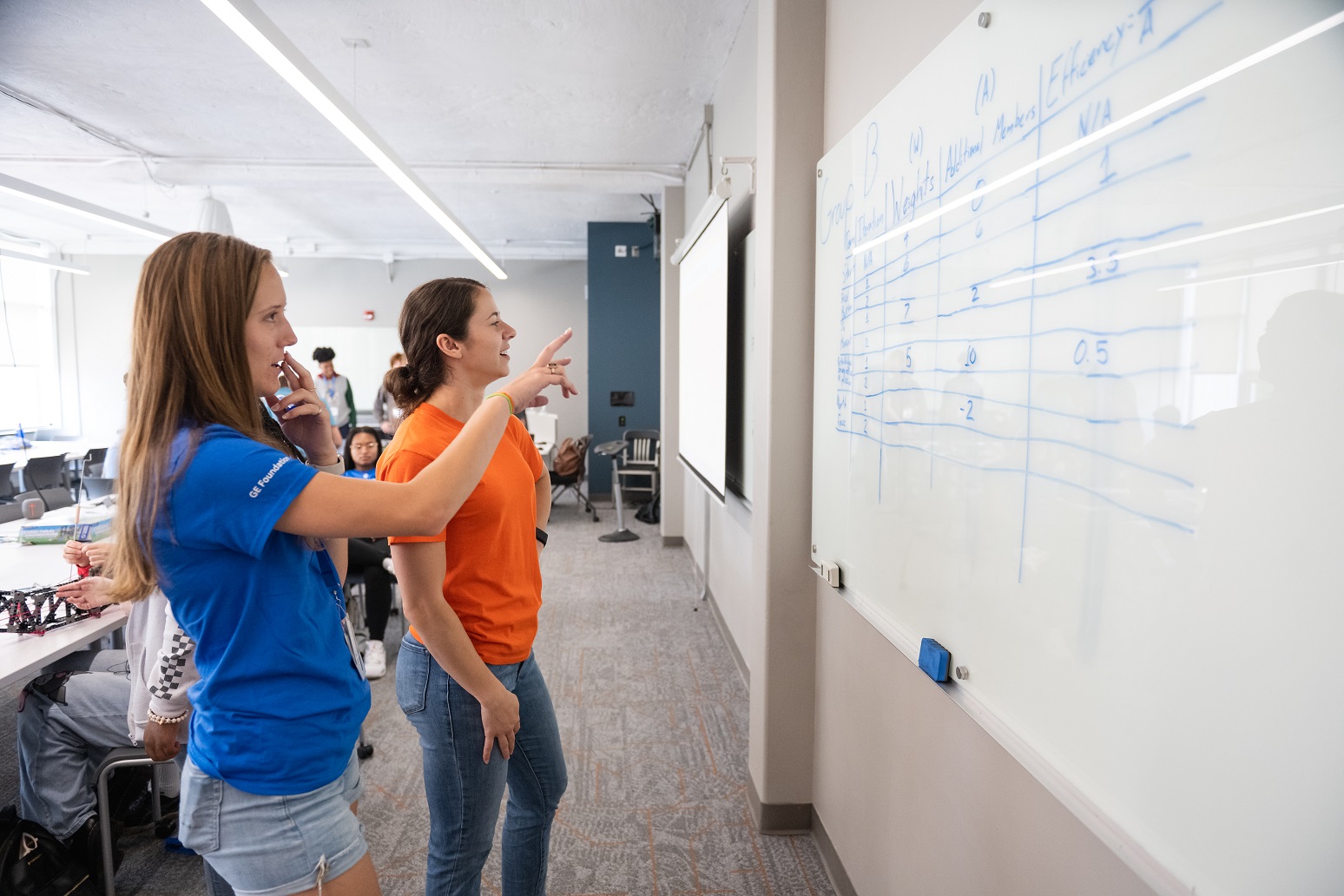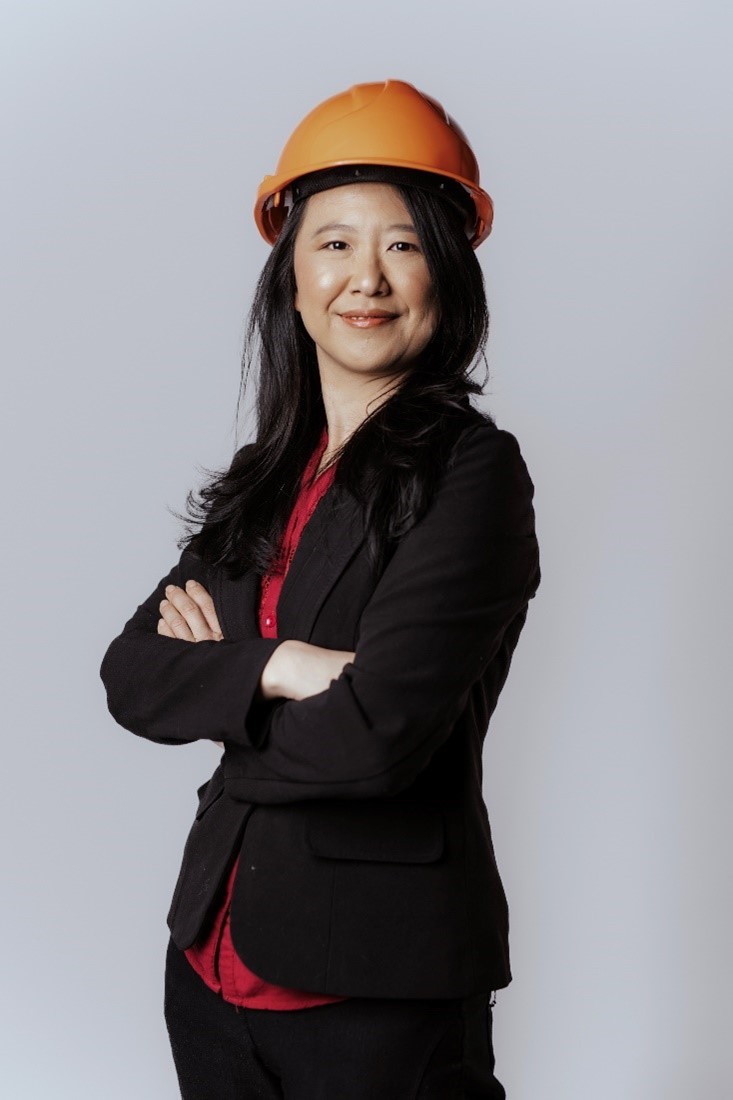
Engineering Academy facilitator Dr. Yu-Chieh Jessie Yen believes that "People need just a little bit of encouragement to do amazing things."
Born in Taiwan and raised in South Africa, Jessie earned her degrees in electrical engineering from the University of Witwatersrand (often called Wits). Reflecting on her decision to study engineering, she recalls, "I went into studying engineering fairly uninformed. I didn't know what engineering was when I chose it. I had good maths and science marks, so there was a bit of strategic thinking, but I had no frame of reference for what engineers do."
Despite her initial uncertainty, Jessie has spent the last decade as an engineering lecturer at Wits. Her passion for teaching led her to become involved in Next Engineers. She explains, "As an academic, one must think deeply about what they want their contribution to be in society. One of the things I feel strongly about is that education is an important enabler and can significantly change a person’s trajectory. Getting an education in engineering and the sciences opens up an incredibly broad range of possibilities."
Jessie believes that the desire to pursue a better life is a key motivator for many students entering tertiary education in South Africa. "I think university represents a set of hopes and dreams for aspiring students – there’s some magic in that. Lots of students come from difficult backgrounds and having the opportunity to study and change their circumstances is important to them."
She highlighted the diverse career paths that an engineering degree can offer. "There's a lot of variability in what an engineering degree offers,” she says. “Engineering graduates take on technical roles in the mining, energy, manufacturing, transport, infrastructure, and communications sectors. However, they are not limited to traditional engineering roles. Engineers are valued for their systems thinking and problem-solving abilities, so opportunities exist in banking, project management, entrepreneurship, research and development, and education; to name a few examples of alternate career paths." Jessie brings this sort of insight to Johannesburg’s Engineering Academy learners, sharing the wide range of possibilities open to engineers that she herself was unaware of when she was their age.
However, Jessie acknowledges the challenges first-year university students often encounter due to the gap in STEM education exposure prior to entering post-secondary engineering programs, "First-year engineering students are often overwhelmed with the different pace of learning and mode of instruction. I'd like to think that Next Engineers Johannesburg has managed to break down some of those barriers. Hopefully, they go to university and feel quite at home."
She emphasizes the importance in Next Engineers learners exploring practical concepts through hands-on activities, which help them connect theoretical knowledge with real-world applications, "The ability to make those connections is key to being an engineer." Next Engineers provides an extra layer of support by providing interactive activities that demonstrate concepts like inertia, momentum, or energy conversion, "The ability to think about the concepts and see how things fit together builds intuition about systems and enhances a problem-solving mindset."
Jessie also notes that Next Engineers can benefit learners beyond academics. In their activities, learners use everyday materials ranging from plastic straws and cardboard to CDs and balloons to create different contraptions that test their creative and functional abilities. "They need to think about the physical attributes of the materials and how to combine them to develop a prototype with the desired function and produce the best performance. It translates to anything that requires piecing things together and finding a way to make it work practically. It's a skill that requires constant refinement."
Learning these skills has taken time. In the beginning, learners doubted their abilities, "Their appetite for challenge and their resilience to deal with a failed attempt were non-existent. They struggled with self-consciousness and lacked the confidence to experiment or try something new.” But now, she says, “By the end of the three years, you see this massive growth. You set them a challenge, and they say, 'OK, let's do it.' Now that's amazing to witness. I think that developing the confidence to experiment and try new things that are perceived to be difficult is vitally important as a life skill, and it was heartwarming to see it cultivated in the learners throughout the program."
Jessie emphasizes that a little encouragement can go a long way with students, "I think that nudging people in the right direction and giving them pointed guidance is incredibly effective."
She has also discovered that incorporating a competitive element into the program is beneficial, "Every time the learners tested their prototype, we wrote down their performance on our leaderboard. That was a good way to give the learners visibility to where they stood amongst peers, and it encouraged a competitive drive." Jessie has also grown and learned through this experience, "Although this program is very different from undergraduate teaching, it's definitely enriched my toolkit. I've been trying to bring a competitive element into my teaching. It gets students excited to try and participate more."
As the Engineering Academy’s first cohort graduates, Jessie is eager to see how her learners' futures unfold, "I look forward to seeing how these learners progress in their tertiary education. I think that's where the real result of our efforts will become evident, even more so in their careers moving forward."
Reflecting on her journey with the Next Engineers program, Jessie’s dedication to education and passion for empowering young minds shines through. As for her hopes for the program's future, she has only one wish: "For it to continue! What else? For it to continue, expand, and grow."
Jessie is grateful that her long-term goal was finally fulfilled through Next Engineers. "Something like this has been on my mind for some time, and when the opportunity came to actually do it, it was very exciting for me. I really felt it was an alignment of shared interests and goals, so thank you to Next Engineers for putting something like this together and for choosing Johannesburg as a site."
As the program continues to evolve, Jessie remains hopeful that it will not only sustain its momentum but expand its reach, touching more lives and opening doors to brighter futures.

